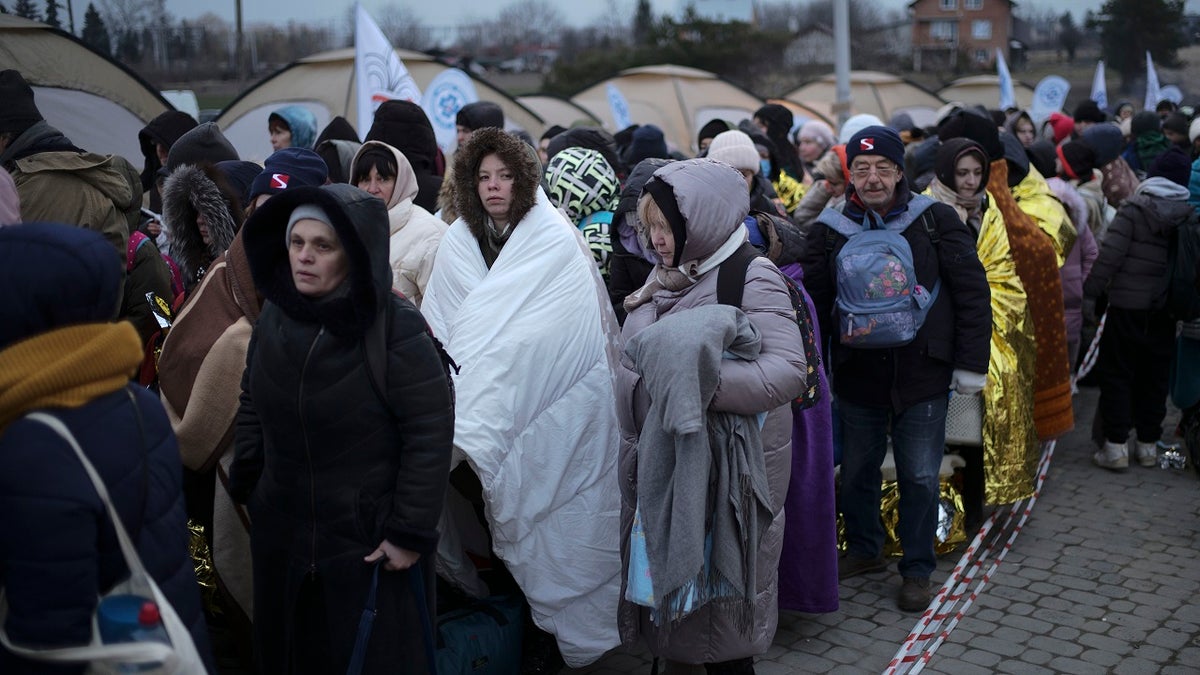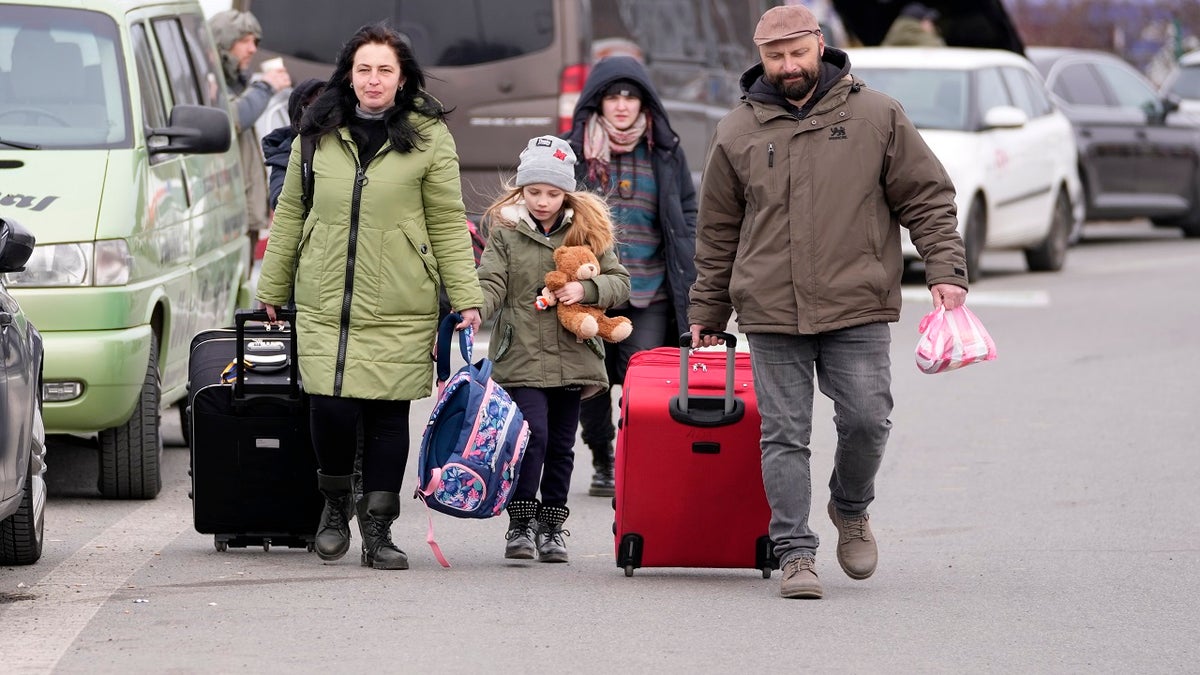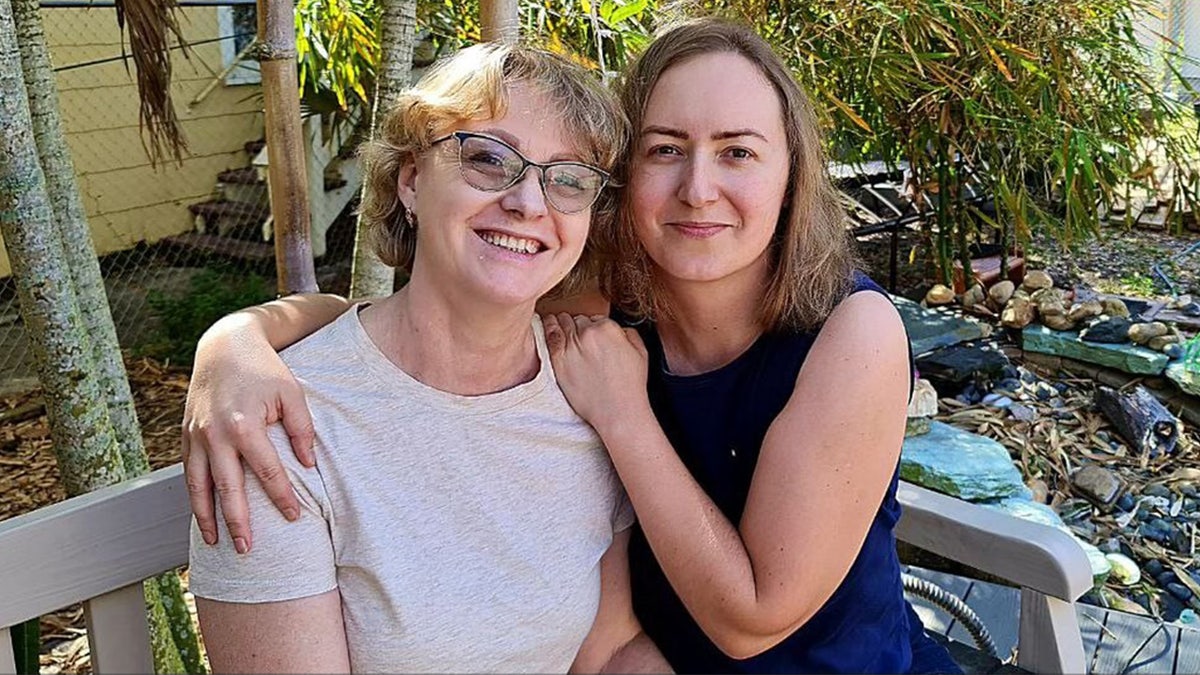Fox News Flash top headlines for March 7
Fox News Flash top headlines are here. Check out what's clicking on Foxnews.com.
Ukrainian American Julia Berozy pleaded with her friends and family, including her 62-year-old mother who is undergoing cancer treatments, to leave Ukraine even before the fighting first erupted.
As the war intensified, she pleaded even harder. However, Berozy said many of her loved ones didn't know if it was more dangerous to leave or stay in the country.

Refugees wait for transportation after fleeing from Ukraine and arriving at the border crossing in Medyka, Poland, Monday, March 7, 2022. (AP Photo/Markus Schreiber)
It's a dilemma many Ukrainians are facing, Berozy, who volunteers with the nonprofit Nova Ukraine, told Fox News. The organization provides humanitarian relief to Ukraine.
Berozy and other volunteers with the nonprofit are offering support to refugees and their families domestically and overseas. At the same time, Berozy, who lived in Ukraine for two decades, is also trying to help her family get to safety.
"The hardest part in the whole evacuation process was not managing the evacuation, but to convince people to leave," Berozy said.
For some, especially the elderly, walking for hours or days at a time proves difficult.

Refugees from Ukraine arrive at the border crossing Vysne Nemecke, Slovakia, Tuesday, March 1, 2022. (AP Photo/Darko Vojinovic)
"So obviously, it prevents a lot of people from even leaving," she said.
But that's only one of many challenges.
NONPROFIT HELPING UKRAINIAN ORPHANS, FOSTER FAMILIES ESCAPE COUNTRY
"If they don't speak [the] language, if they don't have savings, it's even harder for them to go," she said. "They're saying, 'Where would I go? No one is waiting for me there.'"
It's been over a week since the fighting started and some still prefer to stay, she said.
"I worry that a lot of people who decide to leave are going to be in a really dire condition," she added. "Or it might be too late because some bridges are not going to be functional anymore … you can't just easily drive away."
US NONPROFIT DRIVING ESSENTIALS TO UKRAINE REFUGEES AT ROMANIA BORDER
Berozy's mother, Maryna, embarked on her journey to America on Feb 25., just after Russian forces started to invade. At first, she told her daughter she was hesitant to even come.

Julia Berozy and her mother, Maryna Berozy. (Julia Berozy)
"I was considering to just come over to you and stay with you for a while," she recalled her mom saying. "But then I thought that people would think I'm a coward."
Maryna Berozy, all while battling breast cancer, packed up one set of clothes and traveled into Moldova, Romania and Istanbul before taking a flight to Miami. It took her roughly 10 days to get to safety in Florida.
"First impression: it was really scary when we woke up at 5 a.m. hearing explosions. It was an animal fear forcing you to run somewhere, but you don’t know where," Maryna Berozy told Fox News through Julia Berozy, who served as her translator.
She started taking anti-anxiety medication to calm her nerves.
"It only helped so much. I felt I had to keep moving," she explained. "Then there was a day full of stress on a bus and worry that I will miss one of my planes."
On top of that, she continued, "I don’t speak English and I had to call my husband to help me communicate with the staff at the airport."
When she finally made it to St. Petersburg, Florida, she was overcome with emotion.
"I was crying and hysterical and couldn’t stop. The stress of these past few days was taking over," she said. "I had to take a double dose of anti-anxiety medicine to stop."











































